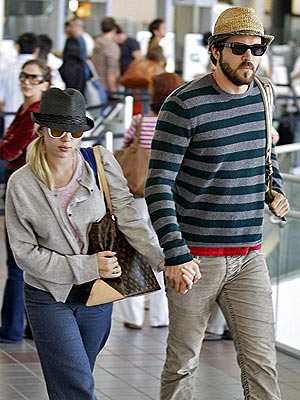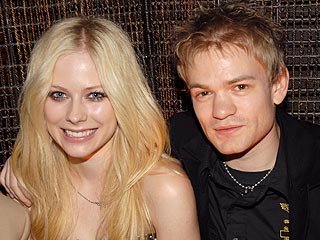 Interpersonal relationship can be termed as an association between two or more people. Emotions like love and liking are usually the basis to such association. Different interpersonal relationships occur under dissimilar contexts. However, what I intend to focus on today, is regarding intimate or romantic interpersonal relationships. Relational formation and development usually begins with a general perception of physical appearance, and then it depends on reasons varied according to diverse needs of different people. Of course, these needs are usually positive ones. For example, where Scarlett Johansson dishes about her relationship with husband, Ryan Reynolds to Glamour magazine, “I never really thought about getting married -- it just kind of happened ... You hope that a relationship makes you better, that you learn things about yourself ... I feel more confident to explore things within myself that I hadn't thought about in the past.” Here, it shows an example of the numerous reasons of a relational formation. To Scarlett Johansson, being in a relationship with Ryan Reynolds helps her learn things about herself and also makes her a better person.Click HERE to read more.
Interpersonal relationship can be termed as an association between two or more people. Emotions like love and liking are usually the basis to such association. Different interpersonal relationships occur under dissimilar contexts. However, what I intend to focus on today, is regarding intimate or romantic interpersonal relationships. Relational formation and development usually begins with a general perception of physical appearance, and then it depends on reasons varied according to diverse needs of different people. Of course, these needs are usually positive ones. For example, where Scarlett Johansson dishes about her relationship with husband, Ryan Reynolds to Glamour magazine, “I never really thought about getting married -- it just kind of happened ... You hope that a relationship makes you better, that you learn things about yourself ... I feel more confident to explore things within myself that I hadn't thought about in the past.” Here, it shows an example of the numerous reasons of a relational formation. To Scarlett Johansson, being in a relationship with Ryan Reynolds helps her learn things about herself and also makes her a better person.Click HERE to read more. Moving on, typically, as soon as a relationship begins, it is only normal that what comes afterwards is the managing of it. The formation of a relationship is only the beginning to a continuous task which requires a lot of hard work and effort in order for it to maintain. Therefore, the maintenance of a relationship is normally the hardest part of a relationship. However, if all is well, the end results will be very satisfying. If despite all the effort and sweat, the relationship still doesn’t go well, that’s when you know that it has entered into a whole new stage, where dissolution is necessary to ease the pain of both parties involved in the relationship. When this happens, Duck’s Model of Relational Dissolution comes into play. In this model, there is a series of five processes in no prescribed order, intrapsychic, dyadic, social, grave-dressing and resurrection processes. More often than not, you will know that a relational dissolution is commencing when one side of the party starts to question all the flaws and the consequences of them in the relationship. From there, they will continue a process within Duck’s model, in no particular sequences, until the final decision is made. That is when both parties agree to separate peacefully and move on.
Lastly, there is also the Knapp's Model of Relational Development. This being one of the most influential models of relationship by Mark Knapp, what is a relationship evaluation without the acknowledgment of it, right? So, according to Knapp’s model, a relationship progresses and develops in a series of ten stages in two phases. These included stages 1 to 5 being the 'coming together' phase and stages 6 to 10 being the 'coming apart' phase. However, these stages do not necessarily take place in sequence, as it may skip several stages or regress even after moving forward. The image to your top right will further explain the model, setting in train with 'initiating' and comes to an end with 'terminating'.
An article by Associated Press reports on Greg Norman, an Australian professional golfer and Chris Evert, a former World No.1 professional tennis player’s divorce. The article also incorporated stories of their past, explaining how they met and eventually got together. During then, they were still settling with their own divorces with their previous partners. After their meeting, everything else was history. But now, here we are, at the end of it once more. Then in no time, we will hear news about their new love life with distinct partners. That’s when you know another relational development has taken place yet again, starting from stage 1 and slowly work its way towards the end once more. To know more, read it for yourself HERE.
An article by Associated Press reports on Greg Norman, an Australian professional golfer and Chris Evert, a former World No.1 professional tennis player’s divorce. The article also incorporated stories of their past, explaining how they met and eventually got together. During then, they were still settling with their own divorces with their previous partners. After their meeting, everything else was history. But now, here we are, at the end of it once more. Then in no time, we will hear news about their new love life with distinct partners. That’s when you know another relational development has taken place yet again, starting from stage 1 and slowly work its way towards the end once more. To know more, read it for yourself HERE.




6 comments:
Maybe it should be highlighted as well that a relationship doesn't have to move through all stages of the Knapp Model, as well as the fact that it's possible to regress or even skip stages. It thus makes it a more convincing model, and justifies why it is such an influential model used so widely.
grace > xue li : yeah, you are right. maybe i had been too caught up with the Knapp's model that i had neglected one of the most important fact. a relationship doesnt always have to abide by each stage in sequence... thanks for mentioning it. =D
i understand that relationships can regress and skip stages but do they always have to go through to the other phase ie. the coming apart phase? can they remain continuously in the coming together phase?
sorry for asking such stupid question
grace > anonymous : well, it's not that relationships must always go through to the 'coming apart' phase. this depends on how the relationship is handled by the parties involved. if they are willing to put in effort to avoid all the arguments, misunderstanding, miscommunications, who's to say that their relationship wont last, right?
i agree with you that maintaining a relationship requires a lot of hardwork on both parties. it may be easy to find a partner, but it is definitely difficult to maintain it as it requires great tolerance and understanding. i think people nowadays are unable to do that, that's why i think they should take things slow in a relationship, and not make important decisions like getting married in a heartbeat as it would ultimately lead to separation due to lack of understanding and communication.
[ ... ] link is being shared on Twitter right now. @zenx, an influential author, said RT @1ndus: Xtreme [ ... ]
Post a Comment